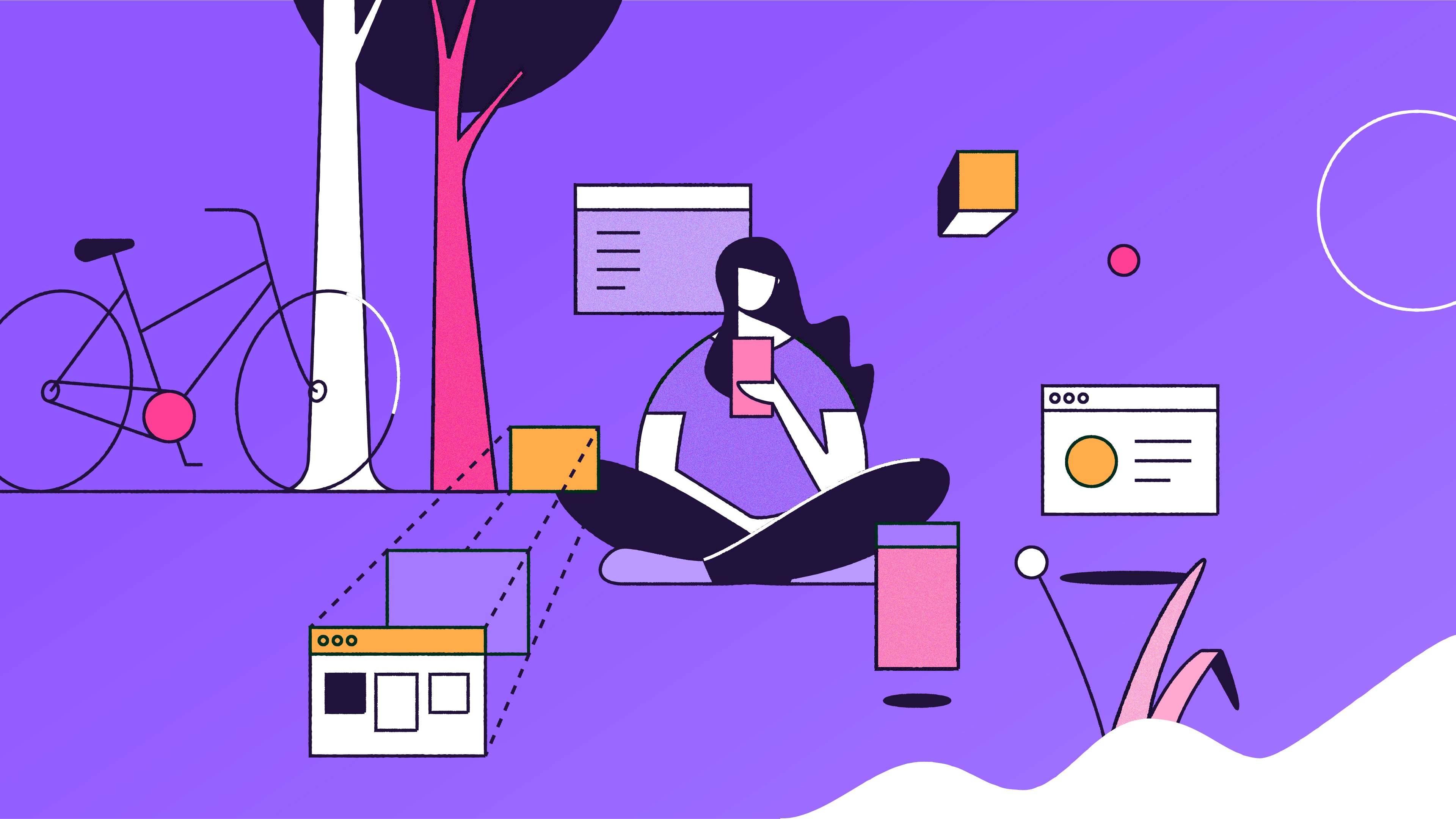Picture this. You arrive at a website you’ve never been to before and the site is full of ads for things you’ve already looked at online. It’s not a difficult thing to imagine because it happens every day. It can feel creepy, especially if you don’t understand why you’re seeing those ads. It can be particularly uncomfortable when you start seeing ads that try to shape your political opinions. With elections coming up in the EU, Canada and the US, it’s important to understand how online tracking can influence you.

What is tracking?
When you browse from site to site, you’re often followed by trackers that collect data on where you’ve been and what you’ve done using scripts, widgets or even tiny, invisible images called tracking pixels, which are embedded on the sites you visit.
What exactly happens during tracking?
Tracking information is stored by the websites in small files called cookies. They can be stored on your computer, smartphone, or tablet browsers. When you return to a page that has set a cookie, it recognizes you by that information. For example, cookies help a website remember your username and password or what you have left in a shopping cart. It can save you a few steps and help you get things done faster.
Cookies can also collect a lot of detailed information about you. For example, cookies are capable of gathering information about your interests, where you live, your religion, your surfing behavior or the people you interact with online. Based on this information, pages can then show you content that is more relevant to you. This is usually done in the form of advertising. Many blogs and news articles are offered for free because website operators show advertisements. When you see the ads on these sites, it creates revenue for the people or organizations behind these sites.
Where do these cookies come from and what’s their purpose?
There are two primary types of cookies: first party and third party. First party cookies are placed by a website operator, and they can help you have a better experience on a site. Third party cookies, on the other hand, do not originate from the website operator, but from separate entities you’ve probably never heard of and didn’t explicitly agree to share your information with. Unbeknownst to you, these third parties are able to place cookies on sites across the web, thereby collecting a multitude of data about each of us.
Algorithms can use that information to develop a very defined picture of you. It would be like someone following you in real life, carefully documenting everything you do and then using all that information to show you ads.
This data is very valuable, which is why an entire industry has grown around buying and selling it. Strangely though, even though the data is about you, you don’t have any control over who sees it, how they use it or who is profiting from it.
Where there’s data there’s power
This data set of your preferences, online actions and purchases can also be used to show you content, some of which is intended to convey a very specific point of view and persuade you. In this age of misinformation you may not even notice that there are conflicting opinions on a topic if you never see them. It can mean a lot of fact-checking and searching for you if you want to have the whole picture.
Using data to manipulate us may sound like a conspiracy but it is a reality. The Cambridge Analytica scandal from last year involved third parties taking user data from Facebook and creating targeted advertising to influence the 2016 US elections. In many elections since, governments have had to take action to prevent outside influences from targeting citizens and persuading them into a specific way of thinking.

Don’t despair
Heading into the European elections in May, this is still a very relevant issue. Anonymous third parties are continuing to use the information they can buy about you to try and influence you. With the information they can glean from your dataset, these third parties know exactly the kinds of messages to inspire your support or incite your rage. In some cases they may use false information to manipulate you.
Many people these days get their news from a social network or from a news source with a distinct bias, putting them in a filter bubble where the content they consume ends up confirming their biases. Finding objective facts or getting the whole story takes a conscious effort.
What you can do
Even if all this sounds pretty bleak, it doesn’t mean you have to be at the mercy of it. You can even protect yourself against by blocking tracking as much as you can. With most browsers, using private modes ensures that your surfing history is not saved and collected by third parties. Firefox, however, goes one step further. You can customize how much privacy you need. So if you want to surf the Internet with less tracking, or continue to share your information with the websites you like and want to support here’s how:
For Facebook in particular, Firefox has an additional solution: the Facebook Container. This Firefox extension keeps Facebook’s tracking methods contained to only what you do on Facebook. When you browse outside of Facebook, third parties can no longer see what you are doing because the container isolates your Facebook information. Outside of Facebook it appears to these trackers that you are logged out or that you don’t have an account. This restricts the amount of information the company can collect about you.
Why do we do all this and what do we get out of it?
Firefox is backed by the not-for-profit organization Mozilla. Our mission is to ensure that the web is a global public resource, open to all.
This post is also available in: Deutsch (German) Français (French)



